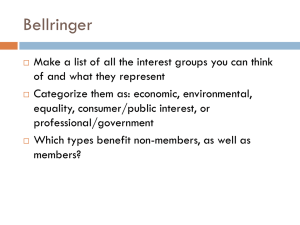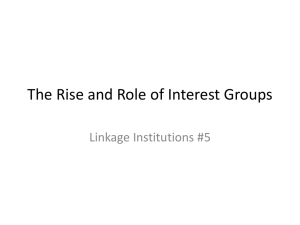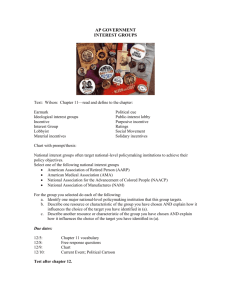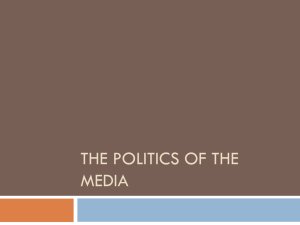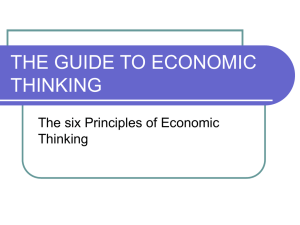Chap 11 Reading Guide
advertisement
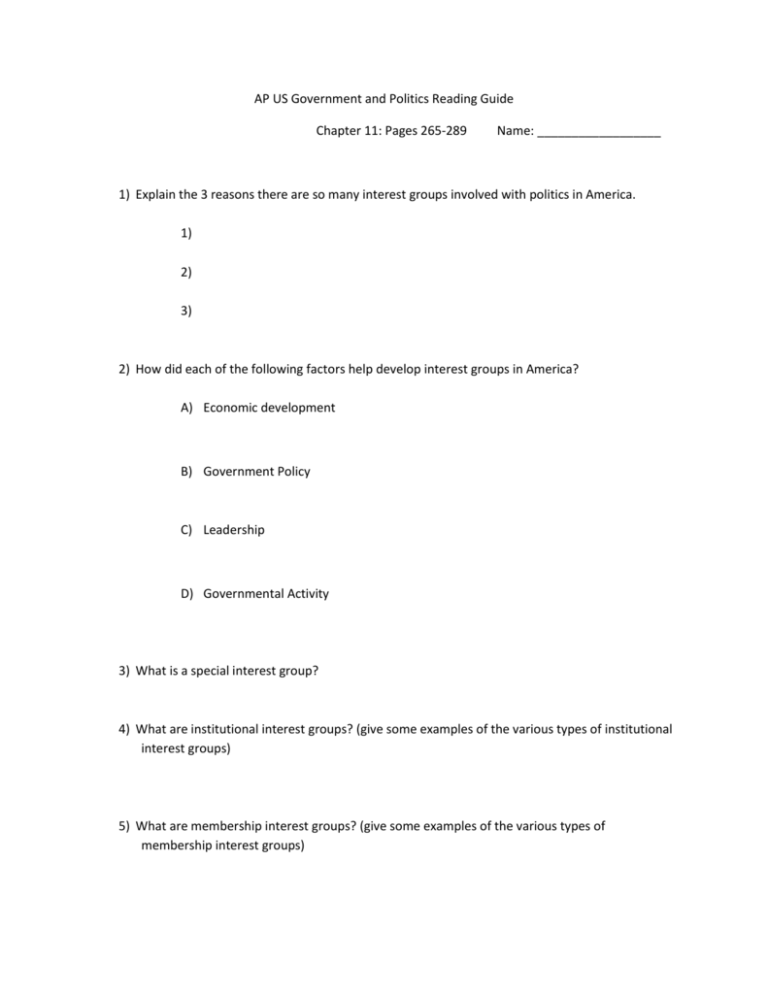
AP US Government and Politics Reading Guide Chapter 11: Pages 265-289 Name: __________________ 1) Explain the 3 reasons there are so many interest groups involved with politics in America. 1) 2) 3) 2) How did each of the following factors help develop interest groups in America? A) Economic development B) Government Policy C) Leadership D) Governmental Activity 3) What is a special interest group? 4) What are institutional interest groups? (give some examples of the various types of institutional interest groups) 5) What are membership interest groups? (give some examples of the various types of membership interest groups) 6) Define the following. A) incentive B) solidary incentives C) material incentives D) purposive incentives E) ideological interest groups F) public-interest groups 7) Why can it be beneficial to a public-interest group to have an administration that isn’t sympathetic to their position in office? 8) How can an interest group’s staff effect the interest group’s policies? 9) What is a social movement? 10) How are interest groups with purposive incentives linked to social movements? 11) With-in a movement, which groups will have the most member? B) Which will have smaller amounts of members? C) Why? 14) Briefly describe how each of the following movements developed and its current importance.. A) The Environmental Movement B) The Feminist Movement C) The Union Movement 15) Explain the various ways interest groups get funding. A) Foundational Grants B) Governmental Grants & Contracts C) Direct Mail 16) Why do many people feel that the power of special interest groups are biased towards the weathy? 1) 2) 17) Why might this perceived bias not be so important? 18) Why might a legislator look to a special interest group for information on a particular issue? 19) Why would the special interest want to provide the information? 20) What is client politics? B) How is a special interest group supplying the government data an example of client politics? 21) What is a political cue? Why do legislators look for them? 22) Why are the ratings a special interest group gives a legislator so important? 23) What is an insider strategy? 24) What is an outsider strategy? 25) Why is the outsider strategy gaining such importance? 26) What is grassroots lobbying? 27) Why might a special interest group attack actual or potential allies? 28) What is the revolving door? Why is it a concern to many people?

